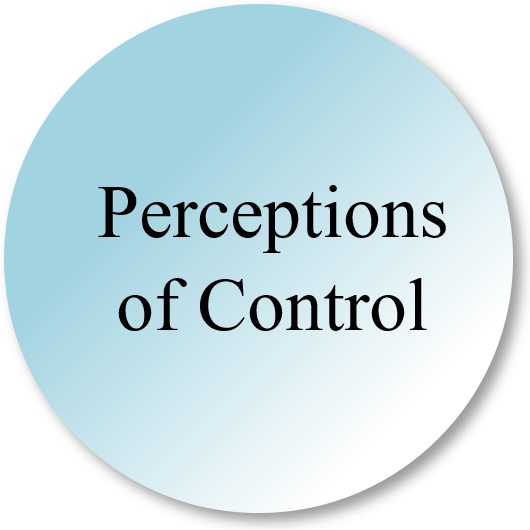




Well Being
LAHR studies examining well being in later life focus on both physical as well as psychological or emotional well being. In our analyses of health congruence, or the match between subjective (self-rated) and objective health (Chipperfield, 1993; Ruthig & Chipperfield, 2006), we identified people who are optimistic or pessimistic about their health. Our results showed the long term negative implications of health pessimism. Other research has examined broad concepts such as life satisfaction (Chipperfield & Havens, 2001) and loneliness (Newall, Chipperfield, Perry, & Weiner, 2012; Newall, Chipperfield, Clifton, Perry, Swift, & Ruthig, 2009), as well as discrete emotions such as regret and happiness (Chipperfield, Perry, & Weiner, 2003; Chipperfield, Perry, Weiner, & Newall, 2009; Newall, Chipperfield, Daniels, Hladkyj, & Perry, 2009). Our research suggests that older adults generally experience a broad range of positive discrete emotions such as pride, that they can isolate causal explanations for emotions, and that specific discrete emotions like happiness can undo the negative effects of loneliness.
Selected Publications
Newall, N. E. G., Chipperfield, J. G., Bailis, D. S., & Stewart, T. L. (2013) Consequences of loneliness on physical activity and mortality in older adults and the power of positive emotions. Health Psychology, 32(8), 921-924.
Scott, T., Mackenzie, C. S., Chipperfield, J. G., & Sareen, J. (2010). Mental Health Service Use among Canadian Older Adults with Anxiety Disorders and Clinically Significant Anxiety Symptoms. Aging and Mental Health, 14(7), 790-800.
Chipperfield, J. G., Perry, R. P., Weiner, B., & Newall, N. E. (2009). Reported causal antecedents of discrete emotions in late life. International Journal of Aging and Human Development, 68(3), 215-241.
Newall, N. E., Chipperfield, J. G., Clifton, R. A., Perry, R. P., Swift, A., & Ruthig, J. C. (2009). Causal beliefs, social participation, and loneliness among older adults: A longitudinal study. Journal of Social and Personal Relationships, 26, 273-290.
Newall, N. E., Chipperfield, J. G., Daniels, L. M., Hladkyj, S., & Perry, R. P. (2009). Regret in late life: Exploring relationships between regret frequency, secondary interpretive control beliefs, and health in older individuals. International Journal of Aging and Human Development, 68(4), 261-288.
Ruthig, J. C., & Chipperfield, J. G. (2006). Health incongruence in later life: Implications for subsequent well-being and health care. Health Psychology, 26, 753-761.
Chipperfield, J. G., Perry, R. P., & Weiner, B. (2003). Discrete emotions in later life. Journal of Gerontology: Psychological Sciences, 58, 23-34.
Chipperfield, J. G., & Havens, B. (2001). Gender differences in the relationship between marital status transitions and life satisfaction in later life. Journal of Gerontology: Psychological Sciences, 56B, 176-186.
Chipperfield, J. G. (1993). Incongruence between health perceptions and health problems: Implications for survival among seniors. Journal of Aging and Health, 5, 475-496.
|

